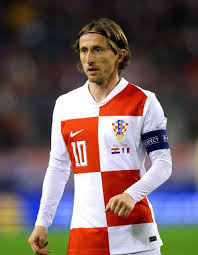
Introduction
Luka Modric, the Croatian footballer famed for his exceptional skills and playmaking ability, has left an indelible mark on world football. His journey from humble beginnings to becoming a FIFA World Cup finalist and a UEFA Champions League winner exemplifies his importance in contemporary sports. As he enters the latter stages of his career, Modric’s influence remains pertinent, sparking discussions around the longevity and adaptation of elite athletes in football.
Career Highlights
Born in 1985 in Zadar, Croatia, Modric began his career at Dinamo Zagreb before moving to Tottenham Hotspur in 2008, where he gained international recognition. However, it was his transfer to Real Madrid in 2012 that solidified his status as one of the world’s top players. Over a decade at Madrid, Modric has amassed a remarkable array of accolades, including five UEFA Champions League titles and multiple domestic league championships. His crowning glory came in 2018 when he won the Ballon d’Or, breaking a decade-long dominance by Lionel Messi and Cristiano Ronaldo.
International Success and the 2018 World Cup
Modric’s international career is highlighted by leading Croatia to the finals of the 2018 FIFA World Cup in Russia. His performances throughout the tournament were nothing short of inspirational, as he was awarded the tournament’s Golden Ball for being the best player. This achievement not only elevated Croatia’s status in the world of football but also showcased Modric’s capability to thrive under pressure.
Current Status and Future Outlook
In the 2022 World Cup, despite being considered past his prime, Modric demonstrated his enduring quality by helping Croatia secure a third-place finish. Currently, at Real Madrid, he continues to play an integral role, showcasing remarkable fitness levels that challenge the narrative regarding older players in fast-paced football. Many analysts believe that as long as he maintains his form, Modric could play through to the 2026 World Cup, further enhancing his already legendary status.
Conclusion
Luka Modric’s journey in football exemplifies resilience, skill, and a dedication that continues to inspire younger generations. His achievements reflect not only his talent but also the evolution of football, where experience blends seamlessly with youthful enthusiasm. As he continues his career, Modric serves as a poignant reminder of the beauty of the game and the potential for athletes to redefine limits, ensuring that his legacy will resonate in the annals of football history.
You may also like

Demarcus Lawrence: A Cornerstone of the Cowboys Defence

Jack Willis: The Rising Star of English Rugby
